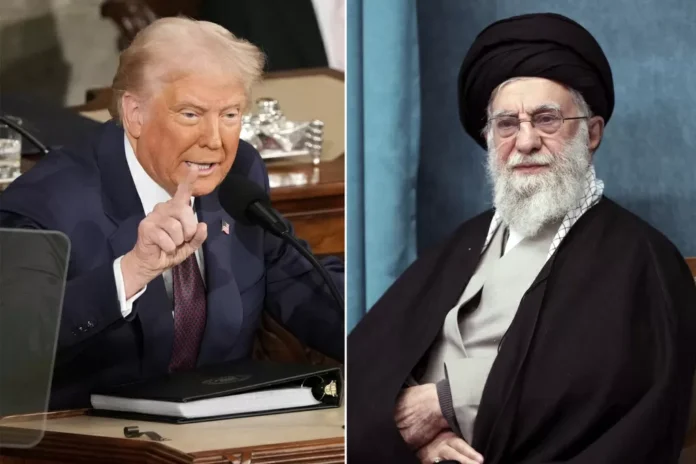Tehran has recently declined direct talks with the United States after President Donald Trump sent a letter to Supreme Leader Ayatollah Khamenei. This decision has caused a stir in the international community and has raised concerns about the future of US-Iran relations. While some are disappointed by this turn of events, others believe that it is in the best interest of Iran to reject these talks. Let’s take a closer look at the reasons behind this decision and what it means for the country.
The letter sent by President Trump to Ayatollah Khamenei was seen as a rare attempt at diplomacy between the two nations. However, Tehran has made it clear that they are not interested in engaging in direct talks with the US. This decision may seem surprising to some, especially after recent tensions between the two countries. But upon closer inspection, it becomes clear that Tehran’s refusal to participate in these talks is a strategic move.
Iran has always been a strong advocate of dialogue and diplomacy, but they have also been firm in their stance against foreign interference in their affairs. The letter sent by President Trump was seen by many as an attempt to interfere in Iran’s internal affairs and impose his own agenda on the country. This is something that Tehran will not tolerate. The Supreme Leader has repeatedly stated that Iran will not negotiate with the US as long as they continue to impose sanctions and pressure on the country.
Furthermore, Tehran has expressed concerns about the sincerity of the US in these talks. President Trump’s actions and statements in the past have shown a lack of consistency and trustworthiness. This has made it difficult for Iran to believe that the US is truly interested in finding a solution through dialogue. The US withdrawal from the Iran nuclear deal and the re-imposition of sanctions have only strengthened this belief.
Another factor that has influenced Tehran’s decision is the recent tensions in the region. The US has been escalating its military presence in the Persian Gulf and has even threatened to take military action against Iran. This has raised concerns about the US agenda and has made it clear that they are not interested in peaceful solutions. In such a tense environment, it is understandable that Tehran would choose to avoid direct talks with the US.
It is also worth noting that Iran has not completely shut the door on talks with the US. They have made it clear that they are open to negotiations if the US changes its approach and shows sincerity in its actions. This is a clear indication that Iran is not opposed to dialogue, but they will not engage in talks that are not based on mutual respect and fairness.
Some may argue that rejecting these talks will only lead to further tensions and conflict between the two nations. However, it is important to remember that Iran has always been open to dialogue and has even shown a willingness to cooperate with the US in the past. It is the US’s actions and lack of sincerity that have hindered progress in finding a solution.
In conclusion, Tehran’s decision to decline direct talks with the US after President Trump’s letter to Ayatollah Khamenei is a strategic move that is in the best interest of the country. It is a clear message to the US that Iran will not tolerate interference in its affairs and will not engage in talks that are not based on mutual respect and fairness. It is now up to the US to change its approach and show sincerity in finding a peaceful solution to the issues between the two nations. Only then can meaningful dialogue take place and a resolution be reached.

